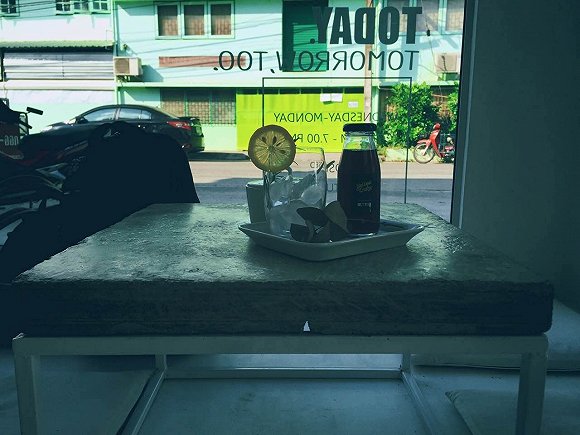How to describe the flavor of Maraka Dula coffee beans in Nicaragua the distribution of manors in producing areas

For professional baristas, please follow the coffee workshop (Wechat official account cafe_style)
Monte Cristo Falls Malakaduri Manor Falls Block Micro-batch Maracadura varieties Solar Finca Cerro de Jesus Plot La Cascada Microlot Maragaturra Natural
■ countries: Nicaragua
■ producing area: Harappa
■ altitude: 1100-1450 m
■ treatment: insolation
■ level: SHG
■ variety: Mara Kadura
■ flavor description: apricot, orange, spices, herbs, tropical fruits
Maraka Dula (Maracaturra): why do CoE award-winning estates grow mixed-race varieties?
Author: A. K. Molina
Special thanks to Mauricio Salaverria's Micro Coffee Festival in El Salvador for his guide and introduction.
Fetch to Perfect Daily Grind
Maraka Dula (Maracaturra): is a mixed breed, like beans (Maragogype) and Kaddura (Caturra) mixed crystallization, is very common in Nicaragua.
But this variety has been planted twice in Apaneca, El Salvador, on Finca Himalaya, a coffee farm in Cup of Excellence, which has won two prizes. We interviewed Mauricio Salaverria, the founder of Divisadero Coffees, the Cup of Excellence that won other estates more than twice.
We talked while he was acting as an international guide to Micro Coffee Festival in El Salvador. He explained why he thought growing Malakadura would lead to a higher quality and yield of coffee.
Bourbon, Pacas, Pacamara: varieties of coffee from El Salvador
Maracadura is very rare in El Salvador. Bourbon, Pacas and Pacamara account for 83% of total coffee production. (according to Consejo Salvadore ñ o del Caf é)
All three varieties can create a very excellent flavor. World Coffee Research (WCR) says they are "very good", "good" and "very potential at high altitudes". However, they are vulnerable to leaf rust and coffee berry diseases. El Salvador and other Central American countries were strongly affected by leaf rust in 2012.
Like Maracaturra, Pacamara is a hybrid of Maragogype-a variety of Maragogype and Pacas, rather than a high-yielding Kaddura. The non-profit organization Fundaci ó n para el Desarrollo Socioecon ó mico y Restauraci ó n Ambiental (FUNDESYRAM) reported that the average yield of Pacamara in El Salvador was 18 piculs per 1 to 2 acres. For Pacas, it is 24 to 70 centimeters per 1 to 2 acres, and for Bourbon, it is 25 to 55 centimeters per 1 to 2 acres.
Break with tradition: why Maracaturra? Mauricio currently grows Elephant beans, Orange bourbon, and Pacamara. Although his current coffee has excellent flavor, he still tries to find ways to improve.
Mauricio talked to Manuel Meza, the then research director of The Salvadoran Foundation for Coffee Research (Procaf é), and Manuel Meza told him that he had met Maraka Maracaturra in Matagalpa, Nicaragua, and had repeatedly won the top five positions in Cup of Excellence.
Manuel Meza was happy to help Mauricio, so he brought the seeds of Maraka Maracaturra to Mauricio to plant.
Nicaragua borders the Cordillera Dipilto Mountains of Honduras in the north.
Monte Cristo Manor is located at the highest peak of this mountain range, covering an area of 280 hectares.
Of which 126 hectares are used to grow coffee.
It is not only a coffee plantation, but also a protected natural mountain forest.
Rich wild ecological environment
It combines natural advantages such as high altitude, rainfall and mineral-rich soil.
The planting mode of shade trees provides an ideal environment for coffee growth.
Before the manor starts to harvest,
They will first select the coffee fruit to be carried out according to the sugar content refractometer.
The purpose of this procedure is to determine which blocks of raw beans in the manor can be made into microbatches:
The ideal value is about 22%.
When the maturity reaches the ideal value
Raw beans will be screened according to the treatment to be carried out (sun, red honey treatment, yellow honey treatment, etc.).
In addition to the varieties that have become popular all over the world, such as Kaddura, Bourbon and Pacamara in the manor of Monte Cristo.
It has also given birth to new varieties in the coffee industry:
Isossage (ethiosarch) and Mara Kadura (maragaturra)
The well-grown Mara Kadura not only has rich fruit flavor.
Elegant and sour, it has amazing performance in aroma and sweetness.
What's so special about Maraka Maracaturra?
Like Maragogype, Maracaturra coffee beans have a large size. Mauricio told me it inherited the excellent flavor and high yield of Kaddura (Caturra). Its short stature has plenty of leaves to ward off strong winds-useful for windy estates in Mauricio.
Unfortunately, this variety is prone to leaf rust and therefore requires a high degree of care. Its flavor is tropical fruit and bright acidity. It finished fifth in Cup of Excellence in 2015, and Mauricio believes its future harvest will be better than that of Pacamara. In the future, Mauricio plans to use semi-washing, honey treatment, and sun treatment to treat coffee fruits in Maracaturra. In doing so, he will be able to find the best way to deal with it. He uses an African bed, which stabilizes the flow of air and makes the drying process more uniform.
Every coffee farm, every coffee variety, long-term care, experiment, and observation are necessary to make good coffee. And Mauricio is very confident about the potential of Maracaturra.
For Mauricio, which strives to improve the quality of coffee, Maracaturra is a promising breed. It gives him more choices to offer to his guests. He was encouraged to find that guests from France, Australia and Canada welcomed the variety.
Manor Nicaragua Finca Cerro de Jesus of Monte Cristo, Nicaragua
The Manor of Monte Cristo is located at the highest peak in the Cordillera Dipilto Mountains of Honduras in the north of Nicaragua. It covers an area of 280ha, of which 126ha is used for growing coffee. It is not only a coffee growing area, but also a protected natural forest and rich wild environment. It combines natural advantages such as high altitude, rainfall and mineral-rich soil. The planting mode of shade trees provides an ideal environment for coffee growth.
Before the manor begins to harvest, they will first use the sugar refractometer to select the coffee fruit to be carried out. This process is to determine which blocks of raw beans in the estate can be made into microbatches: the ideal value is about 22%. When the maturity reaches the ideal value, the raw beans will be screened by the treatment to be carried out (sun, red honey treatment, yellow honey treatment, etc.).
In addition to Kaddura, Bourbon, Pacamara and other varieties that have become popular in the world, the estate of Monte Cristo has also given birth to new varieties in the coffee industry: ethiosarch and maragaturra. The well-grown Mara Kadura not only has rich fruit flavor, elegant acidity, but also has an amazing performance in aroma and sweetness.
Monte Cristo Isosage Manor Micro-batch Isosage Variety Water washing Finca Cerro de Jesus Microlot Ethiosarch Washed
■ countries: Nicaragua
■ producing area: Harappa
■ altitude: 1100-1450 m
■ treatment: washing
■ level: SHG
■ Variety: Isosaki
■ flavor description: citrus, lemon, full juice, sucrose
Important Notice :
前街咖啡 FrontStreet Coffee has moved to new addredd:
FrontStreet Coffee Address: 315,Donghua East Road,GuangZhou
Tel:020 38364473
- Prev

Distribution characteristics of Historical varieties planted in Maraka Dula Coffee Bean Manor in Nicaragua
For professional baristas, please follow the coffee workshop (Wechat official account cafe_style) Maraka Maracaturra: a mixed breed, such as Maragogype and Kaddura (Caturra), is very common in Nicaragua. But this breed has won one of the Cup of Excellence awards twice in Apaneca, El Salvador.
- Next

Matari Mocha Coffee Region Variety Distribution Flavor Description Features Estate Information
Professional barista communication Please pay attention to coffee workshop (Weixin Official Accounts cafe_style ) The following is mattari information: Country: Yemen Production area: Bani Mattar area west of the capital Sanaa Variety: mattari Harvest period: 2005, May 2006 Arrival of green beans Treatment: natural sun stone shelling grinding grade: N0.9 Batch: LOT-112 Appearance and shortcomings: green belt slightly yellow
Related
- Detailed explanation of Jadeite planting Land in Panamanian Jadeite Manor introduction to the grading system of Jadeite competitive bidding, Red bid, Green bid and Rose Summer
- Story of Coffee planting in Brenka region of Costa Rica Stonehenge Manor anaerobic heavy honey treatment of flavor mouth
- What's on the barrel of Blue Mountain Coffee beans?
- Can American coffee also pull flowers? How to use hot American style to pull out a good-looking pattern?
- Can you make a cold extract with coffee beans? What is the right proportion for cold-extracted coffee formula?
- Indonesian PWN Gold Mandrine Coffee Origin Features Flavor How to Chong? Mandolin coffee is American.
- A brief introduction to the flavor characteristics of Brazilian yellow bourbon coffee beans
- What is the effect of different water quality on the flavor of cold-extracted coffee? What kind of water is best for brewing coffee?
- Why do you think of Rose Summer whenever you mention Panamanian coffee?
- Introduction to the characteristics of authentic blue mountain coffee bean producing areas? What is the CIB Coffee Authority in Jamaica?

